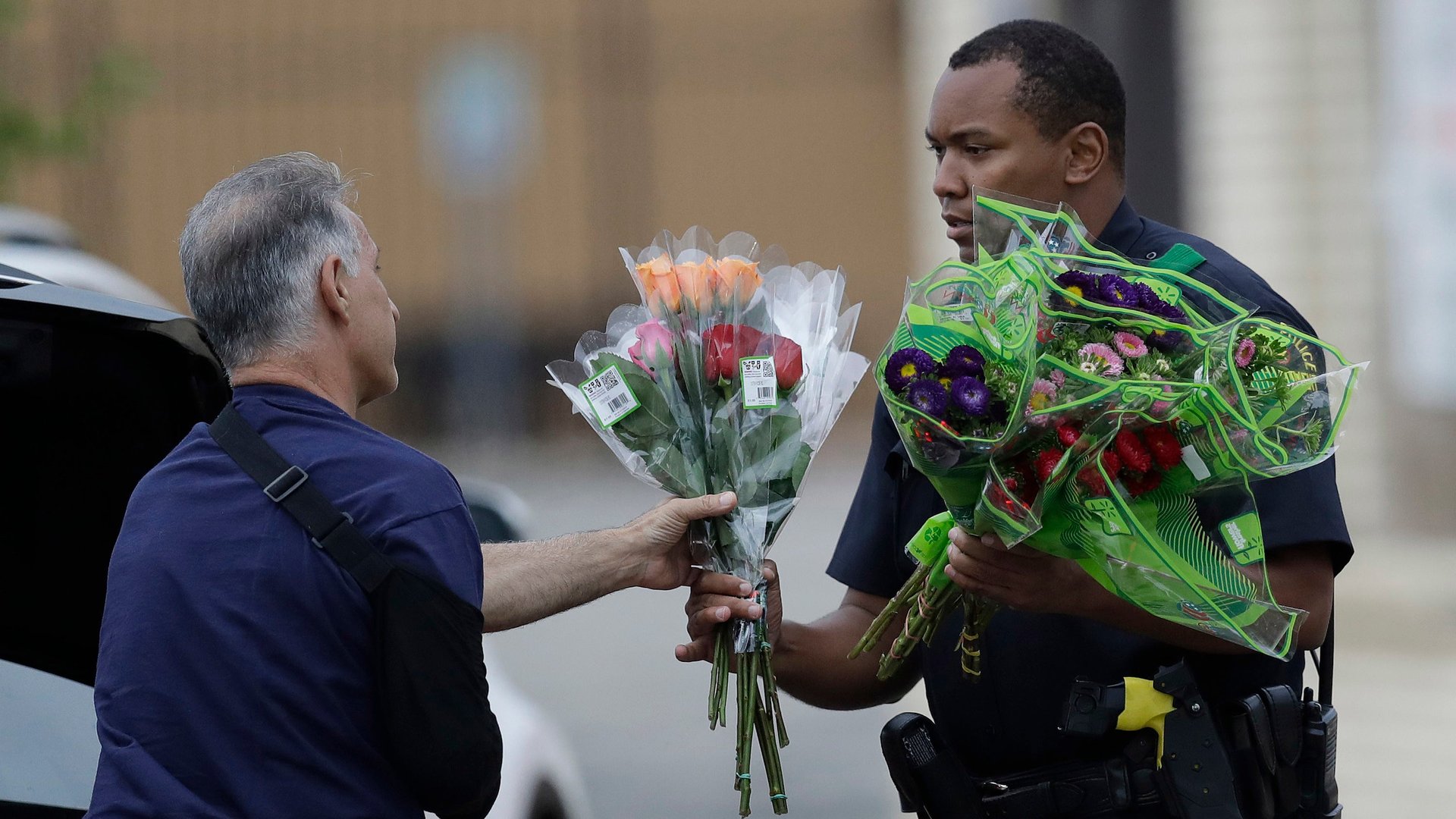Psychology can help us understand the warped logic of revenge
Most people want to believe that the world is a fair place. But recent violence in the US—including the police killings of African-American men Alton Sterling and Philando Castile, and the subsequent murder of five police officers in Dallas—have made the reality of injustice in American society almost impossible to ignore.


Most people want to believe that the world is a fair place. But recent violence in the US—including the police killings of African-American men Alton Sterling and Philando Castile, and the subsequent murder of five police officers in Dallas—have made the reality of injustice in American society almost impossible to ignore.
While the motivations of Dallas shooter Micah Johnson are still being unraveled, officials have said that Johnson was angry about police brutality and wanted to retaliate by killing white police officers. But in seeking to correct a perceived injustice, Johnson committed a horribly unjust act. A look at the psychology of revenge may be able to provide some insight into why some people are motivated to retaliate—despite the fact that revenge almost always perpetuates a harmful cycle.
Research by social psychologist Mel Lerner suggests that most people want to believe in a just world, wherein everyone gets what they deserve. It’s reassuring to believe that bad things happen to bad people, and good things happen to good people. People often tend to cling to this worldview even when they rationally recognize that the world is not a just place at all. For example, a good number of people continue to doubt that African Americans are disproportionately killed by police, although recent data from the University of Minnesota suggests otherwise.
When people who believe in the fundamental fairness of the world are challenged by a system or set of individuals whom they perceive to be acting unjustly, they often aim to restore this balance. The 2003 work of John Darley and Thane Pittman highlights the different avenues by which people tend to seek justice for both minor and major infractions. Of course, the criminal justice system is designed for this purpose, but some people work outside of this system. Some justice-seeking motivations are directed at providing restitution to the victim. This is known as restorative justice, which seeks to “restore the victim’s life as closely as possible to the pre-harm level.”
But other people try to restore the balance of justice by punishing perpetrators—particularly when the offending act appears to be intentional.
Research by Friederike Funk, Victoria McGeer, and Mario Gollwitzer shows that one strong motivation for revenge is to send a message to the perpetrators about their behavior. Those seeking revenge often use this logic to justify hurting innocent people. This may well have been the case with Johnson, who appears to have wanted to send a message to white police officers across the nation. It did not matter to him that the people he killed had not been involved in any of the recent violence.
Research suggests that people often feel satisfaction when contemplating acts of revenge and in the immediate act of taking it. But what they may fail to realize is that revenge will likely make them feel worse over time. As demonstrated by Kevin Carlsmith, Timothy Wilson, and Daniel Gilbert, revenge reminds us of the original injustice, which makes us feel worse.
At the same time, any act of revenge increases the potential for an ever-escalating series of vengeful acts to take place. As Arlene Stillwell describes in a 2008 study, both the avengers and the recipients of revenge see themselves as victims. In effect, it’s almost impossible for people to agree when they’re even. This opens the door to endless cycles of retribution.
The desire for revenge seems to be a deeply human instinct—one that’s difficult to overcome. But some possible solutions can be found in the emotion-regulation literature. If people can successfully recognize, accept, and reframe their anger in a more constructive manner, they are less likely to seek immediate retribution for injustice.
There is nothing wrong with feeling angry at the unfairness of the world. If we want to build a more just society, the solution is not to overcome anger, but to learn to acknowledge and express it in ways that work toward nonviolent solutions. We should also consider research showing that when the perpetrator offers apologies and explanations, people’s desire for revenge tends to be mollified. And as we grow more attuned to our anger, we should take equal care to exercise empathy, working to break the cycle of revenge by acknowledging our common humanity.